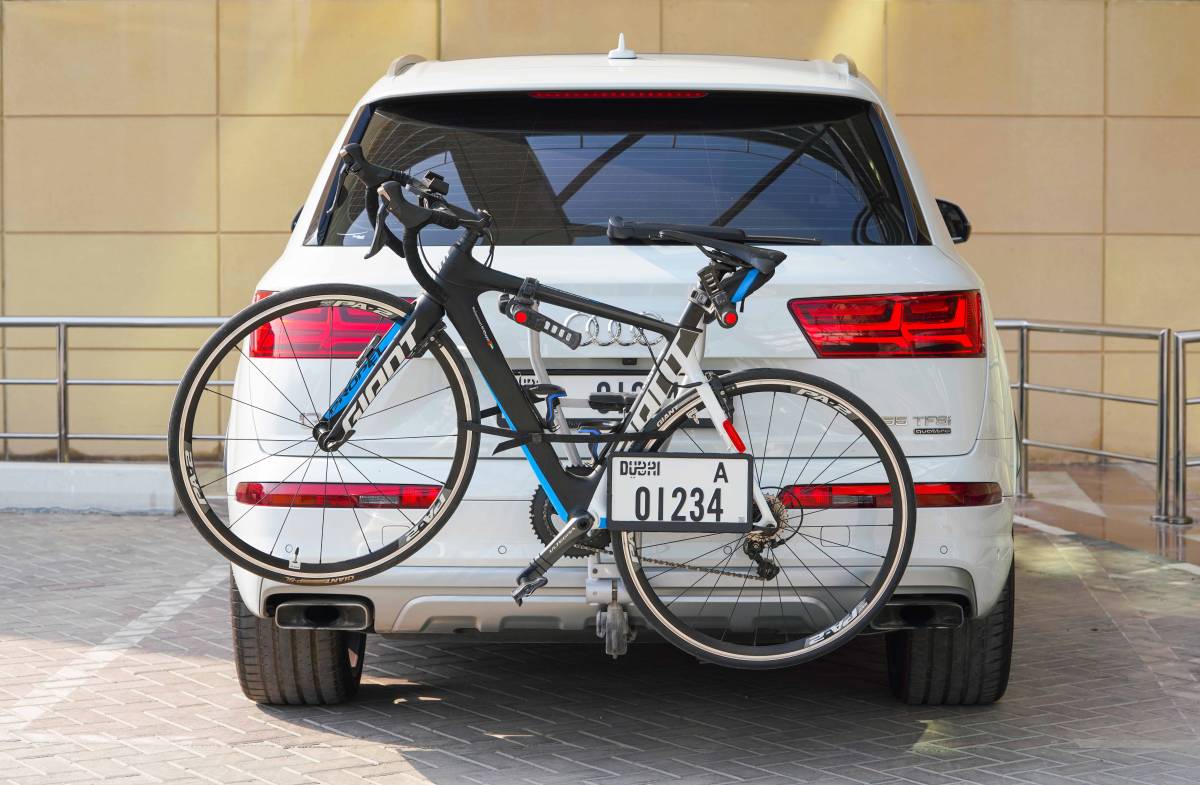Third licence plate for bike racks: What every UAE driver must know
Your guide to apply in Dubai, Abu Dhabi and other emirates

If you’re driving in the UAE with a bike rack that blocks your car’s number plate, you could be risking fines of up to Dh20,000.
Obstructed or obscured number plates violate Federal Decree-Law No. 14 of 2024, but there’s a simple solution: apply for a third number plate designed specifically for bike racks.
Here’s everything you need to know about the cost and process across in Dubai, Abu Dhabi and other emirates.
Third licence plate for bike racks
Dubai
For Dubai residents, the process begins with the Roads and Transport Authority (RTA).
Follow these steps:
- Visit the RTA website, navigate to "Vehicle Licensing," and select "Manage Vehicle Plates."
- Log in using your UAE Pass, access your vehicle registration, and choose "Manage Vehicle Plates."
- Pay Dh35 plus a Dh20 knowledge and innovation fee.
- Once the payment is complete, collect your number plate from an RTA Customer Happiness Centre within 14 days. The plate will be installed at the centre upon collection.
Abu Dhabi
In Abu Dhabi, the process is simpler but requires an in-person visit. Head to the Drivers and Vehicles Licensing Department in Al Mussafah. Request an additional number plate designed for use with a bike rack.
Sharjah, Ajman, Umm Al Quwain, Fujairah, and Ras Al Khaimah
For residents in these emirates, the Ministry of Interior (MOI) oversees the process. Visit your local Drivers and Vehicles Licensing Department to apply for and install the additional plate.
The cost of issuing an additional number plate is Dh35 across all emirates, including Abu Dhabi.
A cycling boom in UAE
The UAE is embracing cycling as a sustainable transportation option, with Dubai leading the way. The emirate’s Cycle City 2040 plan aims to create over 1,000 kilometres of cycling infrastructure, including dedicated bridges and smart lanes. Projects like THE LOOP, a 93-kilometre sustainable urban highway, further highlight Dubai’s commitment to cycling.
In Abu Dhabi, the Union Cycliste Internationale (UCI) recognised its progress by awarding the city the Bike City label in 2021. With investments of $460 million in infrastructure, nearly 300 miles of dedicated tracks are operational or under development.
Safety remains a priority, with initiatives like the CycleRAP Project in Abu Dhabi enhancing cyclist protection through improved road conditions. On the economic front, the UAE’s bike-sharing market is set to grow by 5.5% annually, projected to reach $12.61 million by 2029.